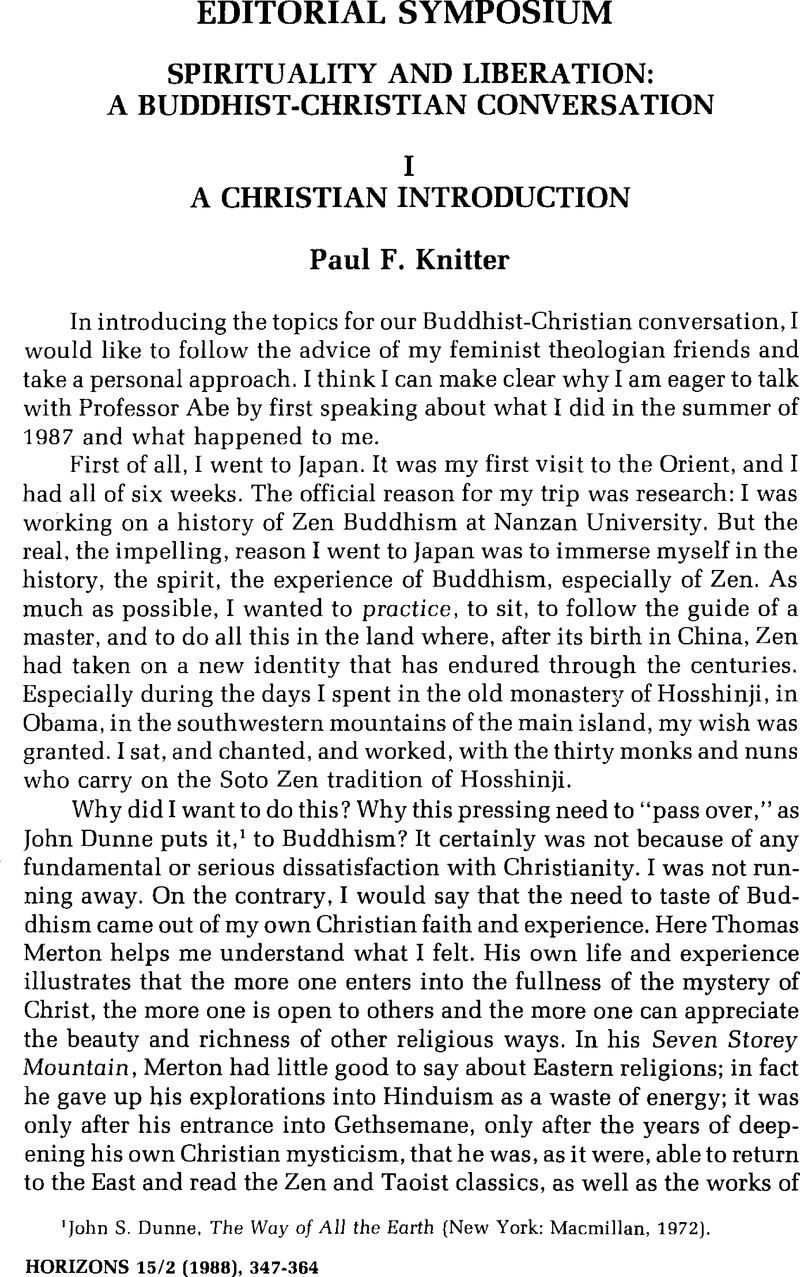No CrossRef data available.
Article contents
Spirituality and Liberation: A Buddhist-Christian Conversation. - II A Buddhist Perspective
Published online by Cambridge University Press: 09 September 2014
Abstract

- Type
- Editorial Symposium
- Information
- Copyright
- Copyright © The College Theology Society 1988
References
1 Shin'ichi Hisamatsu (1889-1980), Professor of Buddhism at Kyoto University in Japan. See Abe, Masao, “Hisamatsu's Philosophy of Awakening,” The Eastern Buddhist 14 (1981), 26–42Google Scholar and “Hisamatsu Shin'ichi, 1889-1980,” The Eastern Buddhist 14 (1981), 142–49.Google Scholar
2 A Zen association established in 1944, Gakudō dōjō literally means “the place for learning and practicing the way.”
3 Abe, Masao, “Sovereignty Rests with Mankind” in Zen and Western Thought (New York: Macmillan; Honolulu: University of Hawaii Press, 1985), pp. 249–60.CrossRefGoogle Scholar This essay was inspired by Hisamatsu's idea of true sovereignty.
4 Abe, Masao, “A History of the FAS Zen Society,” FAS Newsletter, Autumn 1984, pp. 1–12.Google Scholar
5 Hisamatsu, Shin'ichi, Zen and the Fine Arts (Kodansha International, 1975), pp. 18-19, 45–52.Google Scholar
6 Hisamatsu, Shin'ichi, “Ultimate Crisis and Resurrection,” The Eastern Buddhist 8 (1975), 64.Google Scholar
7 Ibid.
8 Bodhisattva's “Four Great Vows” read as follows: However innumerable beings are, I vow to save them; however inexhaustible the passions are, I vow to extinguish them; however immeasurable the Dharma are, I vow to master them; however incomparable the Buddha-truth is, I vow to attain it.


